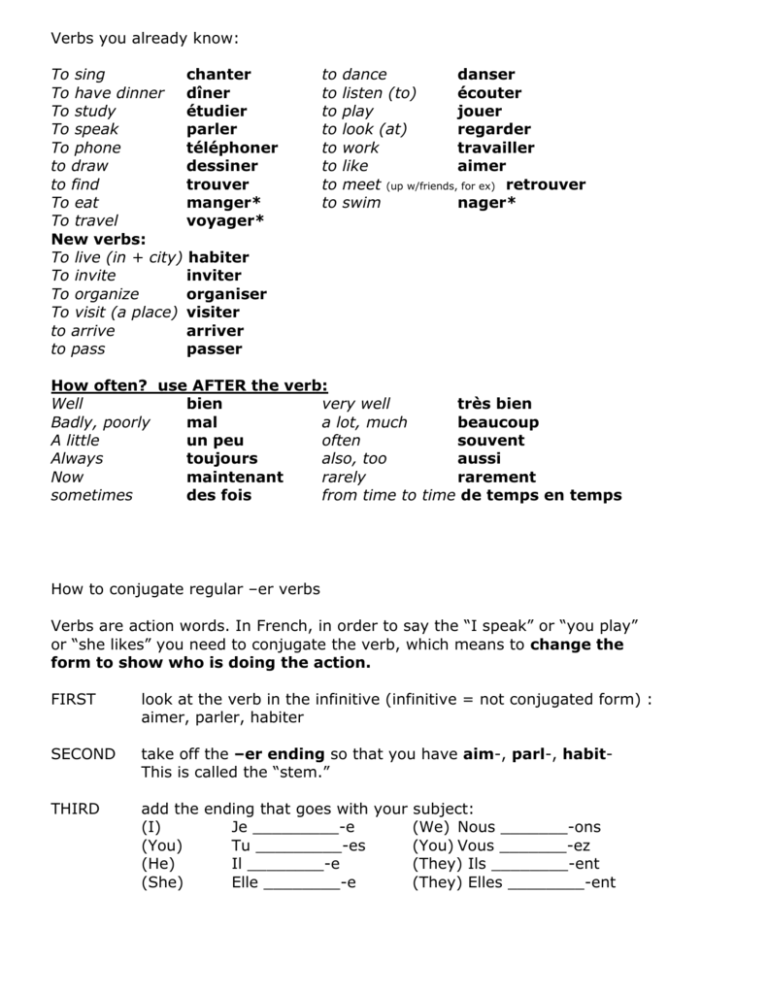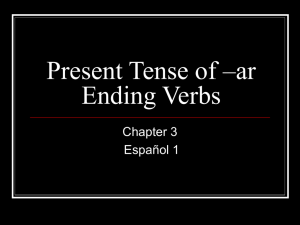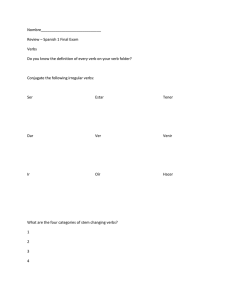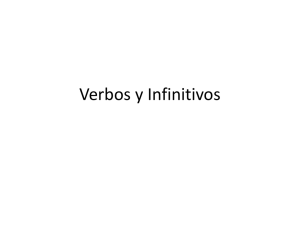how to conjugate regular er verbs
advertisement

Verbs you already know: To sing chanter To have dinner dîner To study étudier To speak parler To phone téléphoner to draw dessiner to find trouver To eat manger* To travel voyager* New verbs: To live (in + city) habiter To invite inviter To organize organiser To visit (a place) visiter to arrive arriver to pass passer to to to to to to to to dance danser listen (to) écouter play jouer look (at) regarder work travailler like aimer meet (up w/friends, for ex) retrouver swim nager* How often? use AFTER the verb: Well bien very well très bien Badly, poorly mal a lot, much beaucoup A little un peu often souvent Always toujours also, too aussi Now maintenant rarely rarement sometimes des fois from time to time de temps en temps How to conjugate regular –er verbs Verbs are action words. In French, in order to say the “I speak” or “you play” or “she likes” you need to conjugate the verb, which means to change the form to show who is doing the action. FIRST look at the verb in the infinitive (infinitive = not conjugated form) : aimer, parler, habiter SECOND take off the –er ending so that you have aim-, parl-, habitThis is called the “stem.” THIRD add the ending that goes with your subject: (I) Je _________-e (We) Nous _______-ons (You) Tu _________-es (You) Vous _______-ez (He) Il ________-e (They) Ils ________-ent (She) Elle ________-e (They) Elles ________-ent











